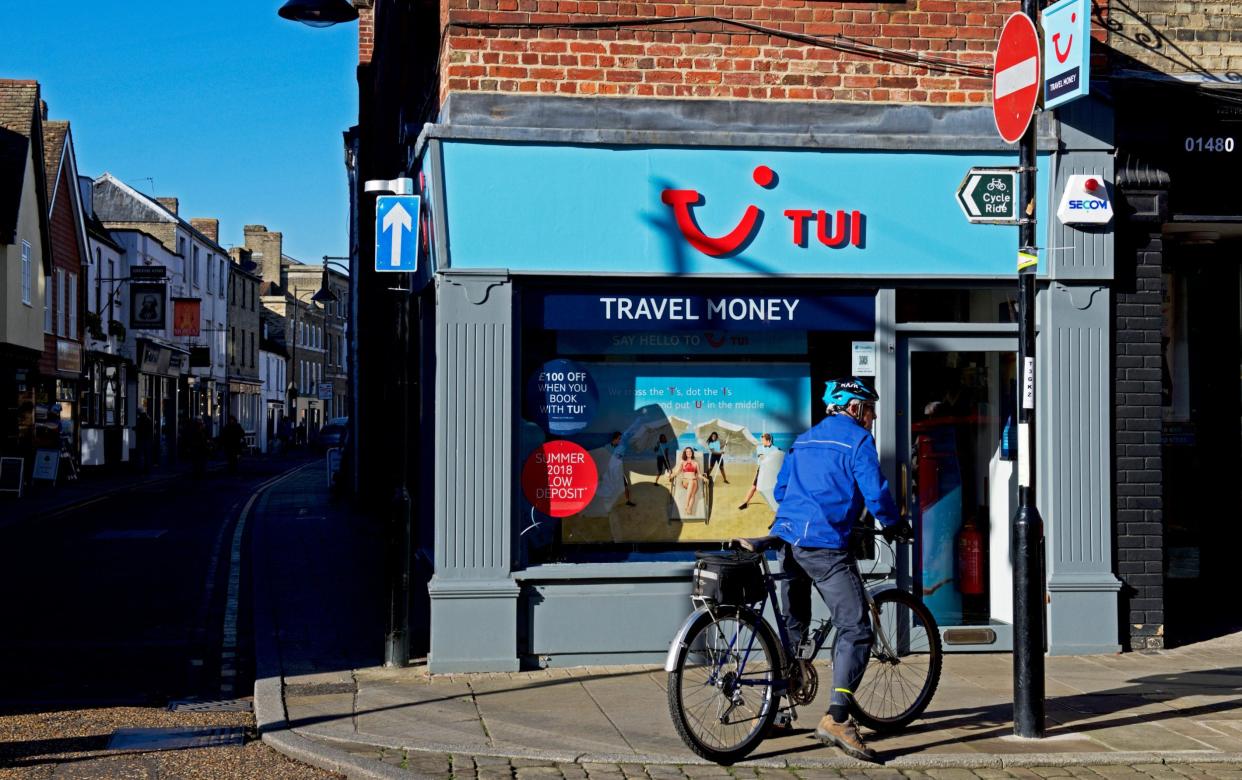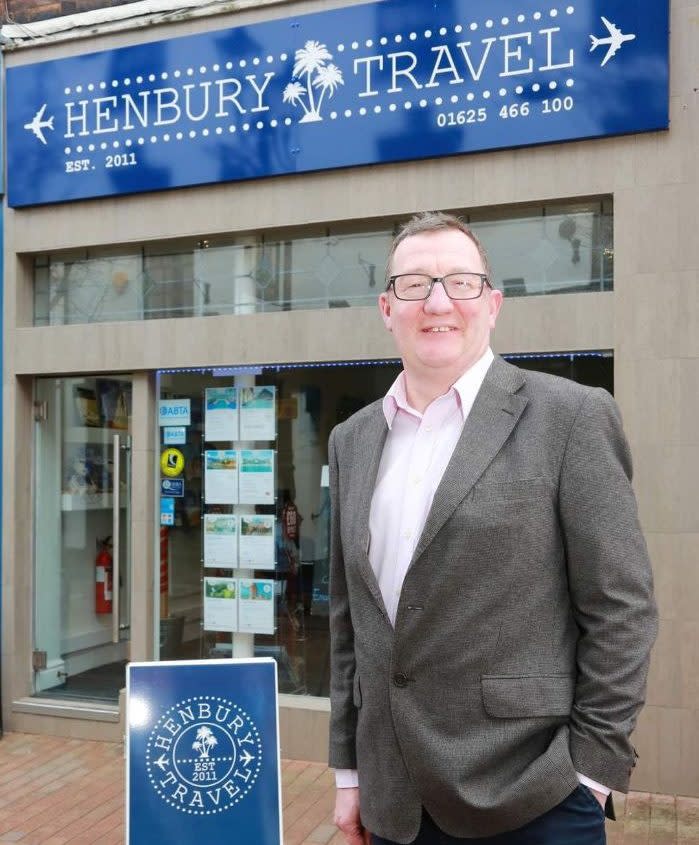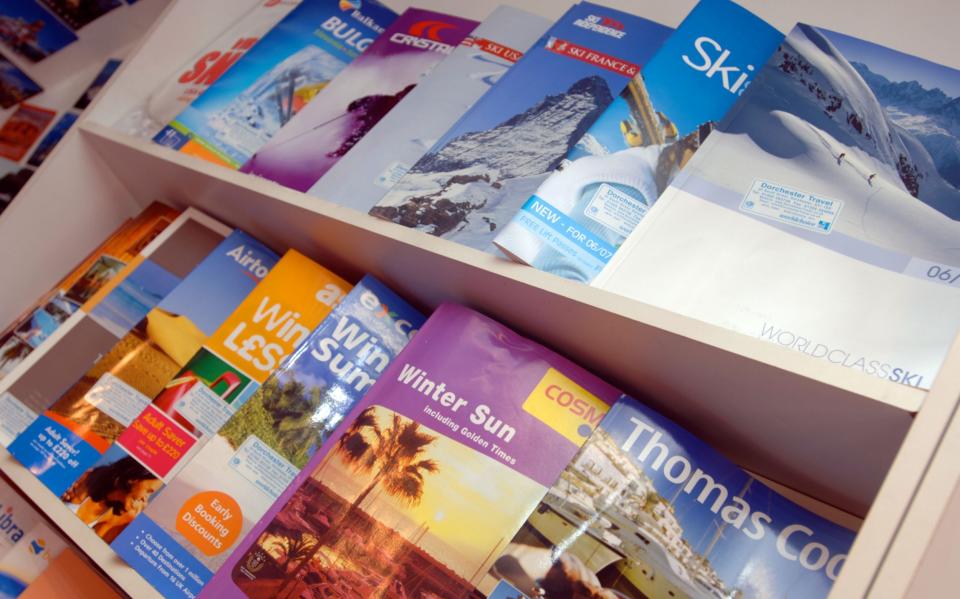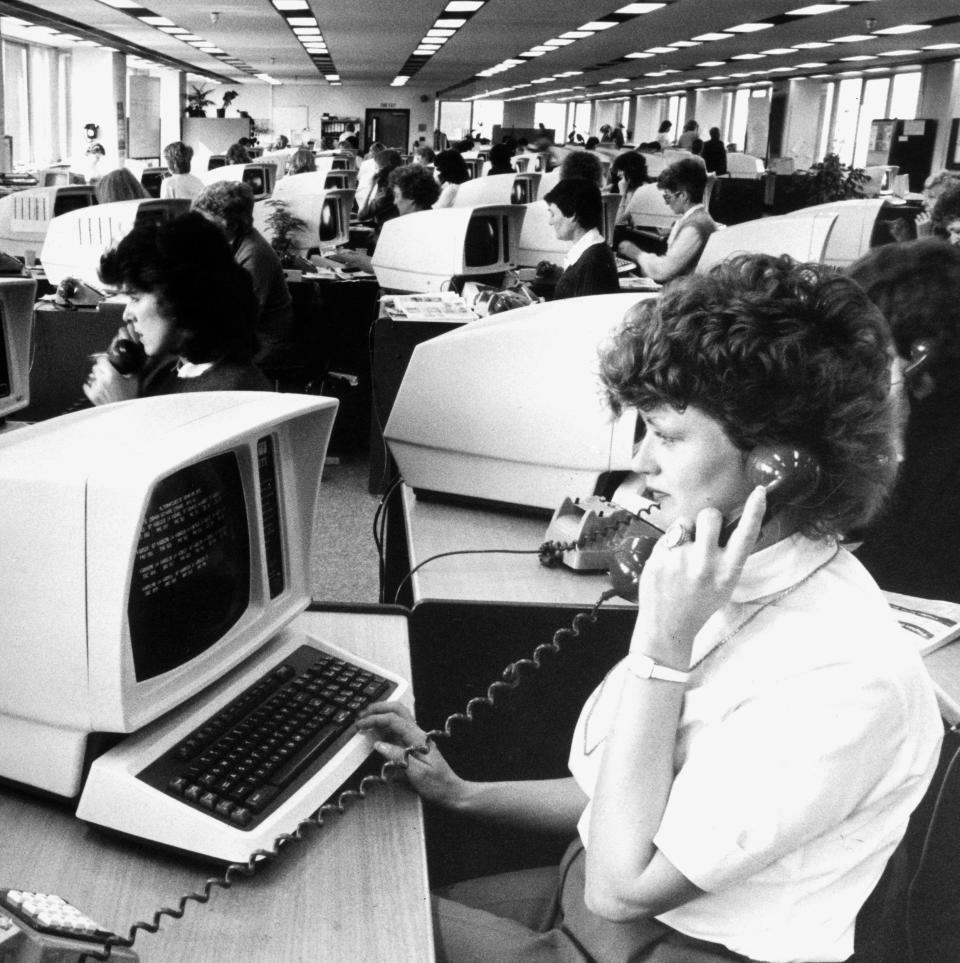How the high street travel agent is making a comeback

The newest branch of Hays Travel won’t have any customers – in fact, you couldn’t book a holiday there if you tried. But it might just be its most high-profile opening, in a location visited by millions of Britons every day: Weatherfield, the fictional northern town setting of Coronation Street.
Eagle-eyed viewers spotted the new addition on the set of Weatherfield’s high street back in October, when its bright blue and yellow branding was covered in a “Coming Soon” sign. It finally “opened for business” this week – and was the backdrop of Monday night’s most melodramatic scene, its Christmas lights twinkling merrily amid the fracas.
But the revival of the humble high street agent is no fiction: all over Britain, travel brands are opening physical stores in response to growing demand.

“We are seeing increasing numbers of clients that want face-to-face meetings,” says Bethanie Hall, partner marketing supervisor at Trailfinders, which currently has 43 “travel centres” – holiday shops – across the UK and Ireland, and three more opening in 2024. ABTA – the Travel Association – which represents British tour operators and travel agents, says its membership currently includes 2,116 stores nationwide; together, its members account for 90 per cent of holiday bookings in Britain, across both high street and online.
TUI, too, is experiencing a “resurgence” in demand for in-person sales, says its director of sales channels Belinda Vazquez. The brand, which has over 400 hotels and resorts, announced in May that it would open 21 new stores over the next 12 months, in addition to its 317 current branches.

Meanwhile, Hays Travel has added 61 shops to its network in recent weeks alone, with the acquisition of former Just Go Travel and Travel House stores – plus its Weatherfield branch, of course. It now has over 470 shops across the UK, and is spending over £3.5 million in refurbishing, relocating or adding branches this financial year alone.
Could travel agents save Britain’s high streets?
Alongside charity shops, travel agents are “propping up” Britain’s high streets, says Jacqueline Dobson, president of Barrhead Travel – which has more than 80 shops nationwide. And heaven knows, they need it: our high streets have long been in decline, and more than 6,000 UK shops have shut their doors in the past five years.
But amid travel’s trend for in-person bookings, the high street’s demise has presented an opportunity, says Richard Slater, owner of ABTA-member Henbury Travel. He recently relocated the business to bigger premises in central Macclesfield, tripling the size of his previous store on the edge of town: “I was able to negotiate heavily on the lease because the hairdresser that occupied it was closing down – whereas our business is growing,” he tells Telegraph Travel.

Online bookings still account for most holiday purchases: rather than rivalling virtual transactions, the uplift in retail reflects the travel industry’s wider buoyancy. The sector has enjoyed double-digit growth for 11 of the past 12 months, the latest Barclays spending report revealed on Tuesday; in November alone, travel agent trade grew by 9.2 per cent, and airlines 14 per cent.
And even the smallest retail travel agents are on the rise: “We’re a tiny shop but we’re doing really well,” says Clare Dudley Adams, managing director of Ponders Travel, in the village of Over in Cambridgeshire. “We have just gone over £4 million in sales, which, for a small team, is impressive.”
When radio presenter Chris Evans spotted a new Travelbag agency on his local high street in Marlow, Buckinghamshire last week, he praised how it was “disrupting” the market by prioritising physical retail. “It made me really happy to see a travel agent popping up on the high street,” he told listeners of his Virgin Radio programme. “Clearly Travelbag has realised that people… might want a bit of social interaction and personal service again.”
That’s the key to retail’s bounce-back, says Jonathon Woodall-Johnston, chief operating officer of Hays Travel. “A holiday is a high-value purchase, not just financially, but emotionally too – and people want to book with an expert,” he insists. It’s a steady hand while you’re bamboozled by choice online, and reassurance that you’re safe from scams. “Coming into a branch gives [customers] the confidence that someone is there to look after them, from booking through to travel and safe return home.”

And booking in-person isn’t necessarily more expensive than online: in May, a Which? report found that holiday quotes were initially pricier via an agent, but many retailers were willing to give discounts when asked. The in-person customer service was “mostly excellent”, it noted, which “can be invaluable if any part of your holiday doesn’t work out as planned”.
“One of those nice little moments in life”
There is comfort, too, in the hazy nostalgia of travel shops. The Eighties and Nineties was their heyday, when around 90 per cent of all Britons’ holidays were booked face-to-face – rather than over the phone. According to Atol, the Air Travel Organisers’ Licensing scheme, more than 3,000 travel agents ran 4,500 branches nationwide, including Lunn Poly, Thomas Cook and Going Places Travel. You may remember their walls of colourful holiday brochures, their perm-haired staff and giant computer monitors – and the pleasing physicality of a paper airline ticket, or a hotel reservation on headed notepaper.

Is there any call for that in 2023? Absolutely, says Slater. “We are effectively a 1980s travel agency, albeit with technology,” he laughs. “We have comfy chairs and lots of brochures – people like the tangibility of them, and talking face-to-face.” It’s the antithesis of online facelessness, a throw-back to simpler times – and perhaps a new cornerstone of the community too. “People often just pop in for a chat, and all ages use us: from 18-year-olds on their first trips, to families wanting beach breaks and retirees booking cruises.”
In the 2000s, with the rise of personal computers and virtual retailing, travel agents fell from favour – unable to compete with online’s stack ’em high prices. And their demise continued: by the 2010s, agents were firmly out of fashion, a relic of an offline world.

But the pandemic was a wake-up call, as thousands of holidaymakers were left out-of-pocket by online companies’ inflexible refund policies, or stranded overseas with no support from an agent at the end of the phone. We quickly learned our lesson: in 2022, a study by ABTA found that 37 per cent of Britons were more likely to book with a travel professional than they were pre-Covid. Their main reasons included up-to-date advice (45 per cent), and the security of a package trip (43 per cent).
As a cherry on the top, booking in-person “feels like more of an experience”, says James Kenny, a portrait photographer from Northamptonshire who recently booked a trip to Turkey via his local TUI shop. “We used to book years ago in person, but stopped when online deals started,” he explains. “But this was so much better. The process of walking into a travel agent, thumbing through the brochures while you’re waiting to be seen is one of those nice little moments in life.”

